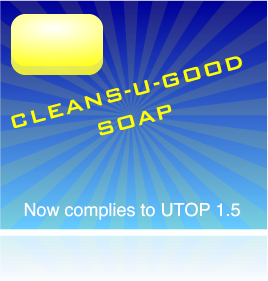Universal Terms of Purchase - A Consumer Version of TOS
 Monday, April 16, 2012 at 10:51AM
Monday, April 16, 2012 at 10:51AM
- Disclaimer 1) I'm no expert on licensing, open sources licences etc.
- Disclaimer 2) I'm not a lawyer and have never been the stunt double for one on TV
- Disclaimer 3) This post is on the boundary of User Experience, right at the edge of the experience 'do I buy/use it or not'. So.
Leverage the concept of BSD-style (etc) licensing
All of us who use software, online services, and many other non-technological services are familiar Terms of Service, or similar. A huge length of text, which is generally optimized highly optimized for the company providing the service.
What if we could take the concept of the GNU/BSD etc. style licensing and offer that to consumers? A 'Universal Terms of Service' or UTOP, written for the benefit of consumers/customers, which a service or product provider could adhere to.

Types of things the UTOP would cover:
- That ingredients and full source of ingredients would be listed
- Definitions for all "features" numerically. For example "Free Range" = Max of 10,000 chickens per hectare
- That personal data would not be traded with other companies
- That the company complies with some defined employee work conditions
- etc.
"Complies with Universal Terms of Purchase 1.5"
How I imagine this would work: on the box/website/posted at place of business is this term. Breeching of this contract would enable a single person, with this clear legal document in place to seek compensation or other mechansim. The incentive for companies would be to online marketing driving savvy customers to products that adhere to the UTOP, and a general preference to purchase stuff under this license.
Downsides:
- To my understanding, MIT/BSD etc licenses were driven by the creator/consumer community. There may be less incentive from the pure 'consumer' end.
- A pessimistic view would see industry impersonate and confuse consumers with similar labels; Imagine the box saying "Complies with UNOPE 2.0 (Much better than UTOP 1.0!)"
- It's easy for big industry to sue a single consumer (think piracy cases). The other direction takes organization, and expensive cross-country legal muscle
 Keith Lang | Comments Off |
Keith Lang | Comments Off | 